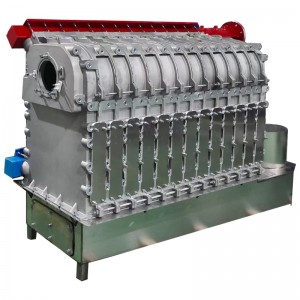- Afrikaans
- Albanian
- Amharic
- Arabic
- Armenian
- Azerbaijani
- Basque
- Belarusian
- Bengali
- Bosnian
- Bulgarian
- Catalan
- Cebuano
- China
- China (Taiwan)
- Corsican
- Croatian
- Czech
- Danish
- Dutch
- English
- Esperanto
- Estonian
- Finnish
- French
- Frisian
- Galician
- Georgian
- German
- Greek
- Gujarati
- Haitian Creole
- hausa
- hawaiian
- Hebrew
- Hindi
- Miao
- Hungarian
- Icelandic
- igbo
- Indonesian
- irish
- Italian
- Japanese
- Javanese
- Kannada
- kazakh
- Khmer
- Rwandese
- Korean
- Kurdish
- Kyrgyz
- Lao
- Latin
- Latvian
- Lithuanian
- Luxembourgish
- Macedonian
- Malgashi
- Malay
- Malayalam
- Maltese
- Maori
- Marathi
- Mongolian
- Myanmar
- Nepali
- Norwegian
- Norwegian
- Occitan
- Pashto
- Persian
- Polish
- Portuguese
- Punjabi
- Romanian
- Russian
- Samoan
- Scottish Gaelic
- Serbian
- Sesotho
- Shona
- Sindhi
- Sinhala
- Slovak
- Slovenian
- Somali
- Spanish
- Sundanese
- Swahili
- Swedish
- Tagalog
- Tajik
- Tamil
- Tatar
- Telugu
- Thai
- Turkish
- Turkmen
- Ukrainian
- Urdu
- Uighur
- Uzbek
- Vietnamese
- Welsh
- Bantu
- Yiddish
- Yoruba
- Zulu
ኅዳር . 08, 2024 11:17 Back to list
Leading Manufacturer of Precision Casting Machinery Components for Industrial Applications
The Importance of Casting Machinery Parts Manufacturers in Modern Industry
In today's fast-paced industrial world, the necessity for high-quality machinery parts has increased exponentially. These components are crucial for the efficient operation of various machines across numerous sectors, from automotive to aerospace and beyond. One of the most significant methods of producing these parts is through casting, and casting machinery parts manufacturers play an essential role in this process.
Understanding Casting
Casting is a manufacturing process in which molten material is poured into a mold and allowed to solidify, taking on the shape of the mold. This technique is favored for its versatility and ability to produce complex shapes that would be challenging to achieve with other manufacturing processes like machining or forging. Casting can accommodate a wide range of materials, including metals such as aluminum, iron, and steel, as well as plastics and ceramics.
The Role of Casting Machinery Parts Manufacturers
Casting machinery parts manufacturers specialize in producing components using casting techniques. These manufacturers typically have extensive expertise in metallurgy, process engineering, quality control, and design. Their primary responsibilities include
1. Design and Prototyping Manufacturers collaborate with engineers and designers to create specific parts tailored to unique applications. Prototyping is a critical step, allowing engineers to assess the feasibility and functionality of the design before proceeding to full-scale production.
2. Material Selection A crucial aspect of the casting process is selecting the appropriate materials. The choice of material affects the final product's strength, durability, corrosion resistance, and other properties. Casting machinery parts manufacturers often have comprehensive knowledge of different materials and supply chains to ensure the best selection.
3. Mold Creation The creation of molds is an intricate part of the casting process. Manufacturers utilize advanced technologies, including CAD (Computer-Aided Design) and CAM (Computer-Aided Manufacturing), to design molds that meet exact specifications. This technology allows for precision and reproducibility, ensuring that each part is consistent with the last.
casting machinery parts manufacturer

4. Casting Process Management Once the molds are created, the casting process begins. Manufacturers must manage the pouring of molten materials and monitor factors such as temperature and cooling time. The casting process must be closely controlled to avoid defects such as air pockets, uneven surfaces, or structural weaknesses.
5. Quality Assurance Quality control is paramount in the manufacturing of machinery parts. Casting machinery parts manufacturers implement rigorous testing and inspection processes to guarantee that each component meets industry standards and customer specifications. Techniques such as x-ray inspection, ultrasonic testing, and chemical analysis are often employed to assess the integrity of the casted parts.
Industry Applications
Casting machinery parts are ubiquitous across various industries. In the automotive sector, components such as engine blocks, transmission housings, and axles are often produced via casting methods. In aerospace, lightweight and durable parts are crucial for improving vehicle performance; thus, manufacturers leverage casting technologies to create these components efficiently. Additionally, industries like energy, agricultural equipment, and construction heavily rely on high-quality cast parts for their machinery.
The Future of Casting Machinery Parts Manufacturing
As technology continues to advance, so too does the future of casting machinery parts manufacturing. Innovations such as 3D printing, additive manufacturing, and smart manufacturing techniques are beginning to revolutionize the casting process. These advancements promise increased efficiency, reduced waste, and the ability to create even more complex parts.
Moreover, sustainability is becoming a significant consideration in manufacturing. Many casting manufacturers are adopting eco-friendly practices, such as recycling scrap materials and utilizing energy-efficient processes. As industries prioritize sustainable practices, casting machinery parts manufacturers that commit to environmentally friendly methods will be well-positioned for success.
Conclusion
Casting machinery parts manufacturers are indispensable to modern industry, providing the foundational components that enable machines to operate effectively and efficiently. With their expertise in materials, design, and production processes, these manufacturers play a critical role in driving innovation and ensuring high standards across various sectors. As technological advancements and sustainability initiatives continue to evolve, casting manufacturers will be at the forefront of shaping the future of industrial manufacturing.
-
Silica Sol Casting Supplier – Custom, ODM & Buy Services High Precision Casting Solutions
NewsJun.10,2025
-
High-Performance AODD Pumps for Diverse Applications Buy Custom & ODM AODD Solutions Online
NewsJun.10,2025
-
High-Quality Casting Machinery Parts Custom & ODM Services Available
NewsJun.10,2025
-
Premium Punching Cement Concrete Pipe Mold Pallets Custom ODM Available
NewsJun.10,2025
-
Premium Cast Aluminum Silicon Radiator Castings For Sale
NewsJun.10,2025
-
Custom Cast Steel Pipe Mold Pallet for Durable Precision
NewsJun.10,2025


